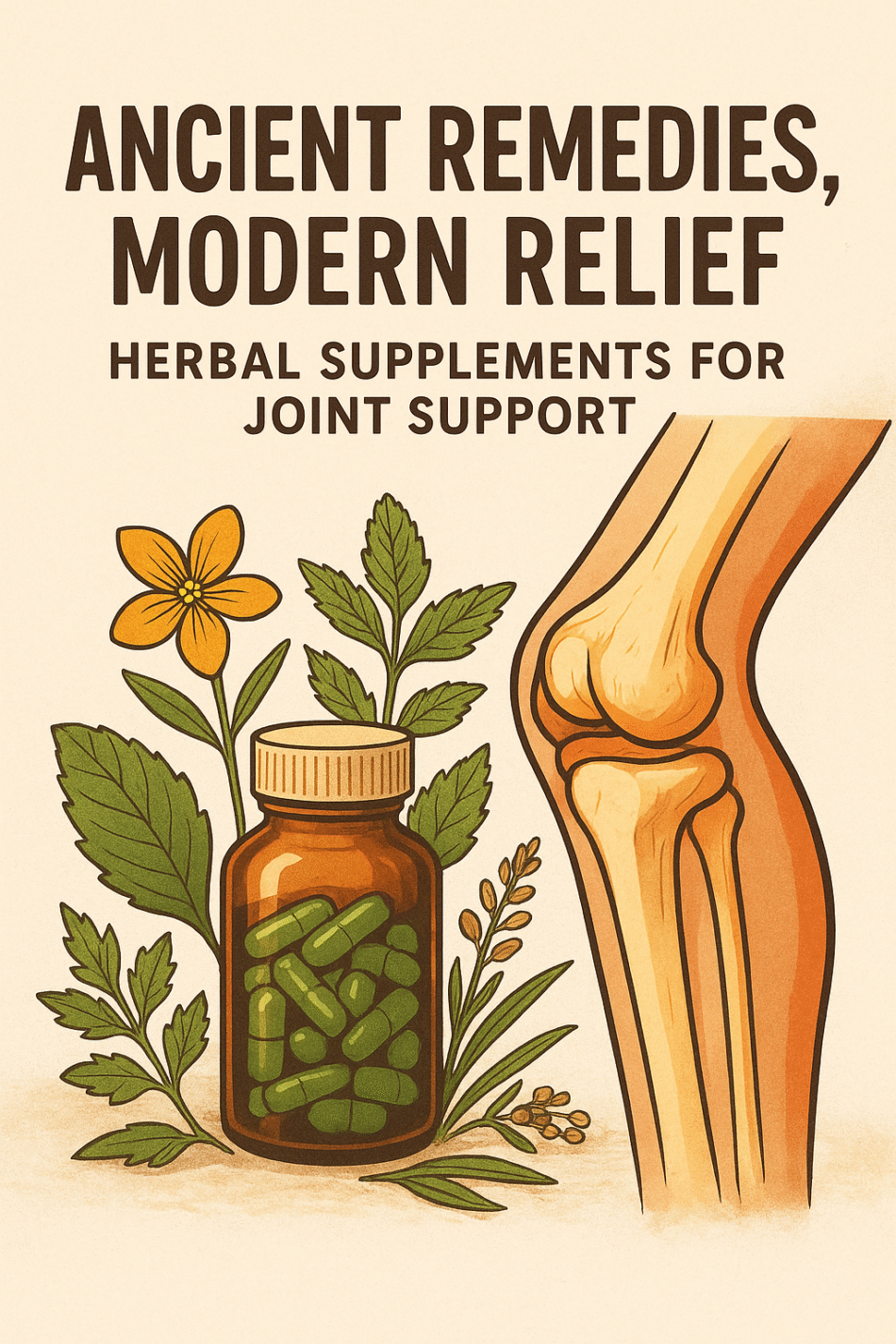Introduction
For centuries, cultures around the world have turned to nature to ease joint pain, stiffness, and mobility challenges. Long before modern medicine, herbs and botanicals formed the foundation of healing traditions in Ayurveda, Traditional Chinese Medicine, and Indigenous practices. Today, many of these Ancient Wellness remedies are making a comeback — not just as folklore, but as supplements backed by science. Let’s explore how herbal joint support combines wisdom from the past with solutions for modern wellbeing.
The Challenge of Joint Health
Joint pain and stiffness can affect people of all ages, whether from arthritis, overuse, or simply the natural ageing process. While pharmaceuticals may provide short-term relief, many people are seeking gentler, natural alternatives that support long-term mobility and reduce inflammation without harsh side effects. That’s where herbal supplements shine.
Herbs with a Legacy of Joint Support
Turmeric (Curcuma longa)
Used in Ayurveda for over 4,000 years, turmeric is prized for its active compound, curcumin, which has powerful anti-inflammatory and antioxidant properties. Modern studies confirm its ability to reduce joint pain and improve flexibility.
Boswellia (Frankincense)
A staple of Ayurvedic medicine, boswellia serrata resin helps reduce inflammation and prevent cartilage breakdown, making it especially effective for arthritis-related joint pain.
Ginger
Traditionally used in both Chinese and Indian medicine, ginger supports circulation and reduces joint swelling. It’s also easy to include in teas, meals, or supplements.
Ashwagandha
Known as an adaptogen in Ayurveda, ashwagandha reduces stress while supporting muscle and joint strength, making it ideal for holistic joint care.
Eucommia Bark
In Traditional Chinese Medicine, eucommia bark is used to strengthen bones, ligaments, and tendons. It’s still a popular remedy for maintaining joint flexibility and resilience.
Modern Science Meets Tradition
What makes these herbs particularly exciting today is that modern research is validating what ancient healers already knew. Clinical studies show measurable reductions in inflammation, improved joint mobility, and enhanced quality of life when these herbs are used consistently. As supplements — available in capsules, powders, or teas — they bring ancient wisdom into a modern, convenient form.
The Holistic Approach
Herbal supplements work best as part of a holistic joint-care plan. This includes:
- A nutrient-rich diet with plenty of whole foods
- Regular low-impact exercise like swimming or yoga
- Mindful practices such as meditation to manage stress
- Consistent use of herbal support for long-term results
This balance echoes the philosophy of traditional systems like Ayurveda and TCM, which view health as harmony between body and mind.
Final Thoughts
From turmeric and boswellia to eucommia bark and ginger, herbal joint support supplements remind us that sometimes the oldest remedies are still the most effective. By combining ancient wisdom with modern science, these natural solutions offer safe, sustainable relief for anyone looking to protect their joints and move with ease.
Embrace the power of tradition — your joints will thank you.









